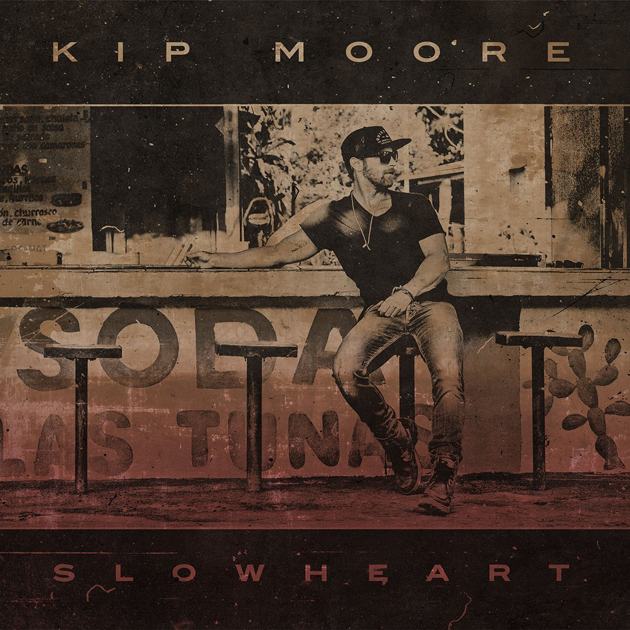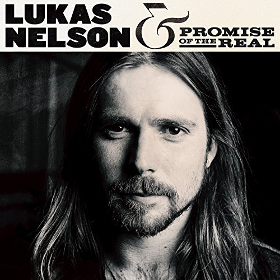Rating: 6.5/10
The case of Kip Moore is a curious one. Yeah, he’s not country; no, not in the slightest. This is a rock album, and the rating above reflects this as an album, not a country album. In fact, it’s less country than Thomas Rhett’s latest offering. Yep, you read that right. There’s actually a song or two on Rhett’s that might be halfway excusable on country radio. But this? Complete, 100% Kip Moore style rock. And I hate that he’s taking one of the precious few slots on a country label to release music as blatantly non-country as this.
But you know what? Inasmuch as Kip Moore is a problem for country music, his presence in the mainstream is a victory for music in general and for true artistry and musical expression. It’s not Kip’s fault they’ll play anything on country radio; credit to him for fighting his labels, releasing original, thoughtful material, most of which he helped write, but more than that, material he wanted to release. You have to give this guy credit for becoming the artist he wants to be in this environment, for managing to stick out in a world of clones and wannabes, and for yeah, just being himself. Remember when I said, Kip Moore style rock? That’s just it; he’s somehow prevailed to keep what makes him unique as an artist–Dustin Lynch, take a lesson–and that’s why you root for his success from a pure musical standpoint. So it’s not rife with fiddle and steel, and if you want that, steer clear. But if you’re just looking for something real, authentic, refreshing, and you have a little more genre allegiance than just strictly to country, you might find a lot to like about this record.
Moore’s last album, Wild Ones, was much the same sonically–most definitely a rock record labeled country, but also fresh and forward-thinking and somewhat unique to Kip. The instrumentation and production on that album were generally quite strong, but the lyrics were mostly just forgettable. It’s the lyrical content where you see a major improvement on this record; you still have the cool riffs and rocking guitars, but you also have depth. Some of these songs lyrically would make great traditional country tunes, and that might serve to attract more people to this album than to his last. As a country fan, it would be cool to hear some of them, like “Plead the Fifth” especially, with a more country production, but that wouldn’t be Kip Moore. That’s not his style, and he’s not compromising, so I have to respect that.
“Just Another Girl” is quite a good heartbreak song, and yeah, the rocking edge and catchy riffs really just add to the intensity. “Plead the Fifth” might be interesting country, but it works well this way too, and together, these open the album with two of its strongest tracks. There are some more hopeful looks on love as well, with the clever “Last Shot” and with “More Girls Like You,” which I enjoyed as a single and which works even better here. “I’ve Been Around” is a bright spot too–just catchy as all hell, and yeah, that’s really all I can say about that one. And then you get to the end and “Guitar Man” comes on and holy crap, this is pretty damn country. Maybe not stone cold, slide guitar country,, but acoustic, lyric-driven, something a Jason Isbell or probably any number of Texas/Red Dirt artists might record. I daresay this is Kip Moore’s strongest song to date; it’s about the traveling musician and all of his experiences on the road and with the audience. It’s the details that sell it, from the “two-tone bucket of rust” to the “redhead named Annie” to the “sweet Lisa” who mixes drinks; “life’s been hard on her, but she’s been good to me.” Kip Moore is obviously a good musician, and his ability as a songwriter has certainly come a long way here on this album, but this song especially displays his ability to draw out emotion when he sings. Just really impressed with this.
And now we come to the stuff here I could really do without. We have a lot of love songs, so the result is that some of them just become forgettable and blend into the background, especially “Try Again.” “Blonde” is lyrically actually pretty good; it’s a tale of a woman who’s become famous and forsaken her hometown and the people who knew her. But it’s got some sort of weird, poppy production that just doesn’t work for either Kip or the song, especially Kip, and I don’t know who came up with this idea, but it sucks. “The Bull” is also incredibly annoying, and it’s unfortunate that these two are back-to-back on the track list. Look, I get that “The Bull” is inspirational or something, as he wants to thank the “bulls that bucked me off” for making him stronger, but again, the production and really everything about this song is just extremely irritating to me. I also would have been happy if he’d left “Sunburn” off the record, as the only word I can think to summarize its existence here is pointless.
But overall, this album is pretty good. It definitely shows a lot of growth for Kip Moore in the lyrical department, and if you like rock albums, I encourage you to check this out. If you weren’t a fan of his past stuff because of the lyrical content, I encourage checking it out too, you’ll probably like it a lot better.
I wish Kip Moore were recording music in the rightful genre because at the end of the day, he shouldn’t be allowed to have success on country radio and country charts anymore than Thomas Rhett or even Sam Hunt. But as I say, what is a defeat for country music in this instance is also a victory for artistry and individuality. Do I wish Kip Moore’s place on Music Row were inhabited by someone more traditional, hell, even country at all? Yes, certainly I do. But as a fan of music first, this is a pretty good album, an album that Kip Moore wanted to make, an album that displays growth and uniqueness and individuality in a mainstream artist. So credit to Kip Moore for finding that, even more for finding it within the confines of the mainstream environment. (Again, Dustin Lynch, it is possible.) Not country in any universe, but not a bad record by any stretch.


